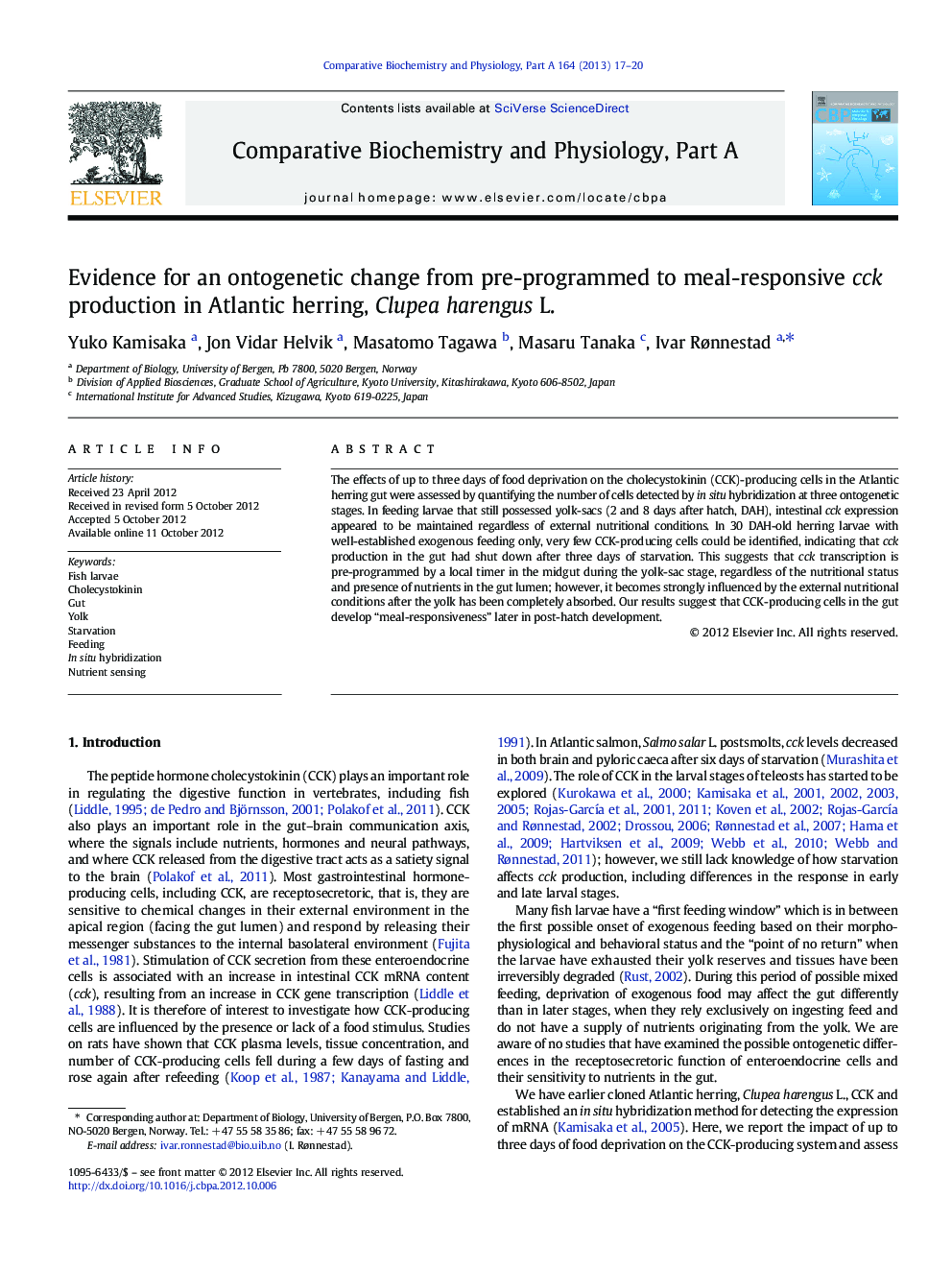| Article ID | Journal | Published Year | Pages | File Type |
|---|---|---|---|---|
| 10818950 | Comparative Biochemistry and Physiology Part A: Molecular & Integrative Physiology | 2013 | 4 Pages |
Abstract
The effects of up to three days of food deprivation on the cholecystokinin (CCK)-producing cells in the Atlantic herring gut were assessed by quantifying the number of cells detected by in situ hybridization at three ontogenetic stages. In feeding larvae that still possessed yolk-sacs (2 and 8Â days after hatch, DAH), intestinal cck expression appeared to be maintained regardless of external nutritional conditions. In 30 DAH-old herring larvae with well-established exogenous feeding only, very few CCK-producing cells could be identified, indicating that cck production in the gut had shut down after three days of starvation. This suggests that cck transcription is pre-programmed by a local timer in the midgut during the yolk-sac stage, regardless of the nutritional status and presence of nutrients in the gut lumen; however, it becomes strongly influenced by the external nutritional conditions after the yolk has been completely absorbed. Our results suggest that CCK-producing cells in the gut develop “meal-responsiveness” later in post-hatch development.
Related Topics
Life Sciences
Biochemistry, Genetics and Molecular Biology
Biochemistry
Authors
Yuko Kamisaka, Jon Vidar Helvik, Masatomo Tagawa, Masaru Tanaka, Ivar Rønnestad,
